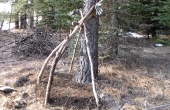








 (If it does work it will work for a long time with a singe application as well)
(If it does work it will work for a long time with a singe application as well)












Action Helps...One Soul with Courage is a Majority. Success is a Journey, not a Destination See the Reaching! A Pessimist Sees the Difficulty in Every Opportunity...an Optimist Sees the Opportunity in Every Difficulty! -Whispers of Eden




For unlimited return on all your investments - Make your deposits at 'The Entangled Bank' !










Action Helps...One Soul with Courage is a Majority. Success is a Journey, not a Destination See the Reaching! A Pessimist Sees the Difficulty in Every Opportunity...an Optimist Sees the Opportunity in Every Difficulty! -Whispers of Eden


























Action Helps...One Soul with Courage is a Majority. Success is a Journey, not a Destination See the Reaching! A Pessimist Sees the Difficulty in Every Opportunity...an Optimist Sees the Opportunity in Every Difficulty! -Whispers of Eden


















Action Helps...One Soul with Courage is a Majority. Success is a Journey, not a Destination See the Reaching! A Pessimist Sees the Difficulty in Every Opportunity...an Optimist Sees the Opportunity in Every Difficulty! -Whispers of Eden















"...specialization is for insects." - Lazarus Long
Universal Introduction to Permies
How Permies.com works

|
All the other guys liked the pretty girls, but I always like you, tiny ad
Our PIE page has been updated, anybody wanna test?
https://permies.com/t/369340/PIE-page-updated-wanna-test
|







